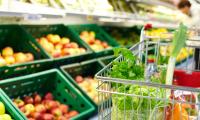EU legislation on deforestation does not address the root of the problem
In the Commission’s impact assessment of EU deforestation regulation (EUDR) the effect is estimated to approximately 72,000 ha of forest that will be “less affected by EU-driven deforestation and forest degradation annually by 2030”. This is a rather minor effect compared to the EU’s overall impact. In addition, it is doubtful whether the proposal can actually achieve this effect, as it is unlikely to significantly change EU’s large consumption of high-risk products. The proposal falls short of meeting the EU's responsibility to address global deforestation and is therefore only a small step in the right direction.
Limited effect on the total global deforestation
The EUDR contains a number of obligations for businesses regarding due diligence procedures to ensure that raw materials and products associated with deforestation cannot be placed on EU’s internal market or exported. Thus, the legislative proposal contains an extensive due diligence regime for companies and a large public monitoring system.
However, the legislation does not focus on reducing EU’s consumption of the high-risk products contributing to global deforestation and the proposal therefore risks simply shifting EU imports to countries/areas that have not recently been deforested, and then other actors of the global market will buy the products that EU actors previously bought. This is because global demand for food is increasing and the World Resources Institute estimates that around 45% more food will need to be produced by 2050 to feed all people of the world.
In a report from Ethical Trade Denmark 12% of the surveyed companies consider moving their production to Europe and 30% consider choosing suppliers within the borders of the EU. This suggests that there may simply be a shift in European companies’ supply chains towards import and production within the EU. There is thus a significant risk that the regulation will have very limited impact on global deforestation and degradation of forest. It may even contribute to legitimizing continued consumption of high-risk products in the EU, as EU citizens might assume that this law now has solved the problems related to deforestation. The due diligence system may help EU companies become more aware of their impact on deforestation, however, as long as companies can import the same quantity of products from other countries/regions, the overall effect is limited.
Shortcomings in the EUDR
It is problematic that the EU does not address instruments that are more likely to have a positive impact (directly or indirectly) on the protection of nature and forest, including natural carbon stocks.
In the further development of this legislation, emphasis should be on reducing the risk of production simply moving elsewhere or the “bad soy” being bought by others. This could be done through the following initiative:
- Expanding protection to more habitats, so that it is not only production from newly deforested areas that are covered by the proposal. For example, protection should include peatlands and ‘other wooded lands’ like savannas
- Expanding the list of risk products to include rubber, which has the same risk of contributing to deforestation as coffee and cocoa
- Increasing the focus on cooperation with the producer countries, including small-scale farmers and indigenous people. This could involve a focus on the protection and restoration of nature in the producer countries as well as support for sustainable and efficient agricultural production. The latter can be supported through initiatives that help increase yields from existing agricultural land in a sustainable way, thus preventing expanding agricultural land into natural areas
Neither the Danish government nor the EU Commission have addressed the issue of the increasing global demand for food and bioenergy, and how the regulation can contribute to reducing the total demand. As it is now, the legislation does not solve some of the main roots of the problem. This should be addressed in any further development of the regulation or in additional regulation.





